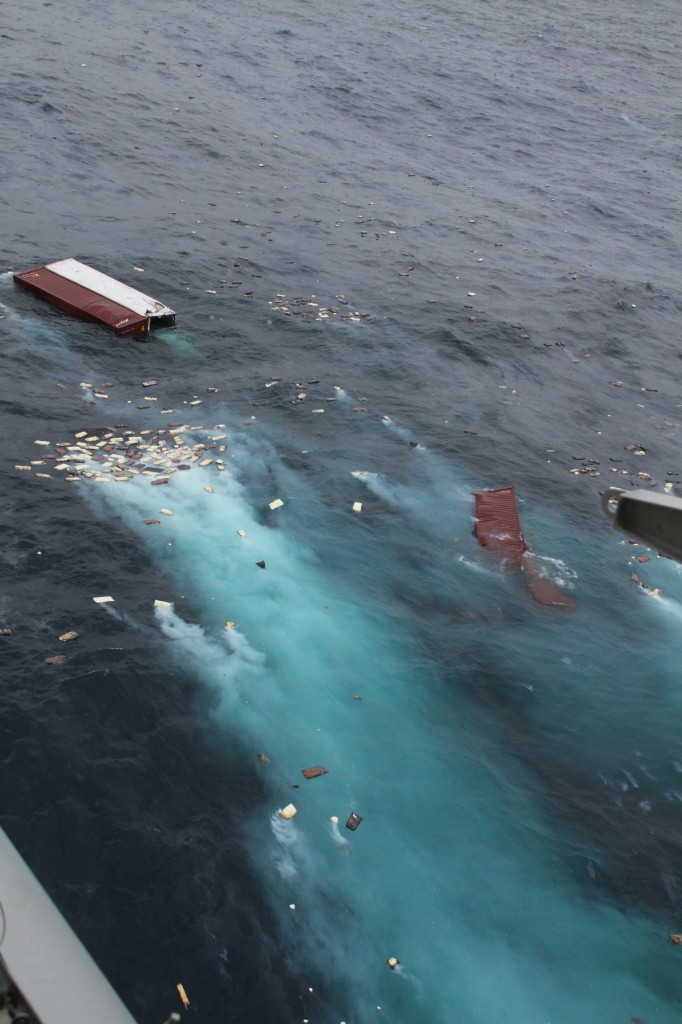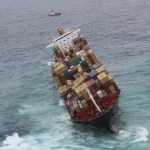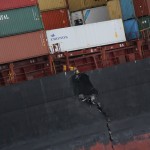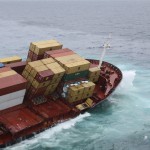Owner Sorry, Crew Quits
Owners Statement
11 Crew Quit
Eleven of the Rena crew have quit and have boarded flights back to the Philippines. This leaves only 6 crewmen behind including the Captain and Second Mate who both have been charged in court. A growing anger towards the crew has started an anti-Filipinos sentiment in the communities impacted by the oil spill.
Response and Cleanup
The total number of containers fallen into the sea is up to 88. One containing alkyl sulfonic acid has fallen into the sea causing greater concern of the toxic substances on board the Rena. The acid can have a long lasting impact to the environment as it slow to biodegrade. Some 50 tons of solid wastes from the oil spill has been recovered. Over 1500 volunteers are helping in the process.
Three tugs are positioned around the stern of the Rena if the ship begins to break up. If the vessel’s stern stays afloat, the tugs could drag the portion of the vessel closer to port to allow more oil to be recovered. If the vessel capsizes or sinks, there is little the tugs can do.
Rena at 20 Degrees
The Rena is now positioned some 20 degrees to starboard and is expected to breakup as the crack in the number three hold widens. The remaining oil on Rena is located in the stern of the vessel in a watertight compartment. There is some concern that this compartment would split open when the vessel breaks up. Another concern is the vessel could capsize sending all the containers on deck into the sea. With several containers containing toxic substances, this could pose another risk to the wildlife and environment.








